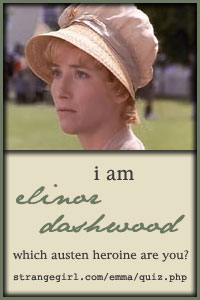 Marching to Zion: A Novel by Mary Glickman
Marching to Zion: A Novel by Mary GlickmanMy rating: 5 of 5 stars
Marching To Zion by Mary Glickman begins with the story of Margaret Preacher, "Mags", who is a country girl and unfamiliar with big city sights. She has never been inside much less seen a building 5 stories high, and she is in awe of the differences between where she was born and raised as opposed to where she now finds herself. She got to the city by hitching a ride on the back of a milk truck where she managed to fit herself among the canisters. What she wants to do in this new and bigger place is borrow money so she can learn to do hairdressing for black women, and after she has the knowledge she needs, she'll be able to open her own store. A chance meeting on the street with Magnus Bailey, a kind of entrepreneur of the day, was a real stroke of luck. She'd like him to loan her $100 so she can get started learning her trade. She offers Magnus 10% of her profits until the loan is repaid, and Magnus would get 10% of her profits for 6 months beyond that. Instead of loaning her the money she needs to start her business, Magnus gives her $10 and sends her to a rooming house where she can get reasonable lodging. Magnus believes she will be able to find a job and earn the $100 she needs.
After several job interviews that did not pan out for her, Mags decides to apply for a job at a funeral parlor. George McCallum was the man in charge of most of the services the funeral home offered, and Mags was very impressed with how good George made the bodies look. She wanted him to teach her how to do that. Eventually Mags and George realize they love each other, so they marry, and both their lives are peacefully happy both at work and at home. Unfortunately, things change.
The St. Louis riots take place followed by an outbreak of the Spanish Fever, and it becomes necessary for Mags to pack up the people who are family, whether or not they are related by blood, and move them all back to where Mags came from. Mags has a cousin, Aurora Mae, who lived in a place known as the Stanton House. Mags decided to stay there, but the former owner of the funeral home, Mr Fishbein, his daughter, Minerva, and Magnus Bailey continue their travels heading toward Memphis.
From this point the stories of each of these people take turns none of them would have expected. Minerva has always been a troubled girl, and as she ages, she only becomes more and more unsettled as she cannot get what she wants for herself. It is at this point that the subjects of race and heritage become highly important to the characters in this story. Each of them deals with prejudice that ultimately affects their destiny. It is also at this point that the unfairness of such petty, by today's standards, differences lead to tragic consequences. Glickman does a superb job of letting the reader know exactly what the repercussions of being both Black and Jewish meant in this time frame, and it is heartbreaking. There is no level playing field for any of these people, but only one of them may be able to overcome what seems like an impossible, unsolvable burden.
I labeled this book as a historic novel along with other tags, because Glickman has included some important historical events in her narrative. These events, such as the St. Louis Riots do not normally get much if any special attention in history books, and that is an unforgivable oversight. Glickman cleverly, through characters I had come to deeply care about, told the story from a deeply personal side of how this one event changed the lives of so many people. And the hardest part to accept is that this event never had to take place at all. I also was unaware that the answer to racial problems for people in this country could be resolved by going to Europe. This country was founded upon the right of freedom, yet a huge portion of the population could never have that unless they left the country committed to providing it. The same holds true for religious freedom. That was available so long as the person seeking such freedom was of the "correct" religion. Only for Jews the option of going to Europe posed larger difficulties than staying in the US did.
While Glickman has addressed very heavy, important issues in her book, she did it all through very likable, very human characters. Nothing was so heavy handed as to appear one-sided. I thought Minerva, or Minnie, was such a good case in point. For me she embodied the stress and unfairness of the time in which she lived. Her fate was troubling.
I received an ARC of this book from Open Road Media in exchange for an honest review. That in no way influenced my rating of 5 Stars for this book. In fact, I'd have given the book more stars if possible. Read it - it's that good.
View all my reviews







No comments:
Post a Comment